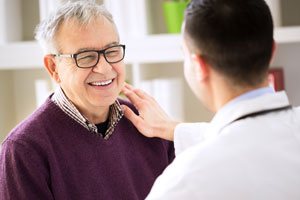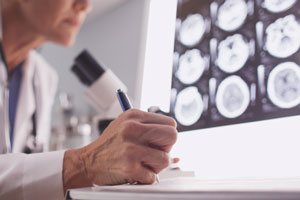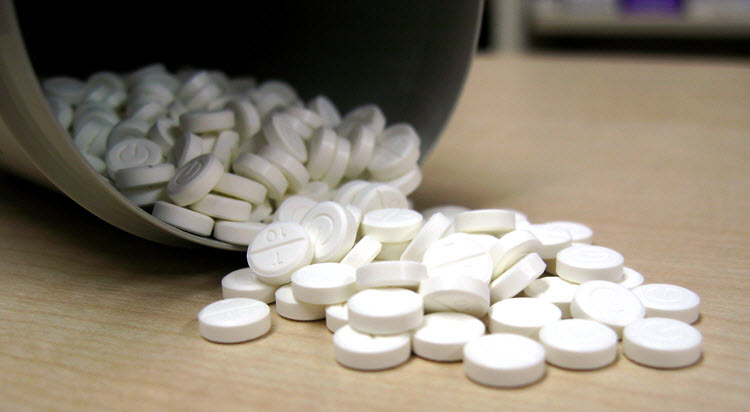New Hope Opioid Addiction Treatment
New Hope Opioid Treatment Centers are the nation's leading provider of opiate rehab facilities. We are committed to providing the highest caliber of inpatient and outpatient treatment and recovery, therapeutic, and holistic care for individuals in need of treatment for substance abuse. We believe that everyone's situation is unique, and that each individual should be matched to a rehab facility that fits their specific needs. Our mission is to help as many people as possible find life long sobriety and happiness.
Contact Us NowAlcohol Addiction
Alcohol addiction can lower a person's life expectancy by up to ten years and often leads to other forms of mental illness.
Drug Addiction
Drug addiction is a chronic psychological condition that prevents the ability to stop using mind altering substances.
Dual Diagnosis
In some cases, a mental health disorder exists prior to the development of a drug or alcohol abuse disorder.
Break Free from Opioid Abuse
Let us help you with the recovery process. Get in touch with one of our treatment providers who truly want to help.
Opioid Use Disorders and Treatment Programs
Dealing With Opioid Dependency
Due to the fact that they're in crisis, many people with addictive conditions go to hospital emergency situation rooms. Many medical facilities offer an assessment and examine the client's main need and after that link him or her to the best treatment that best addresses their special requirements. Numerous basic hospitals do not confess patients exclusively for withdrawal or drug abuse treatment, unless there is some other factor such as a loved one medical issue present.
Substance use conditions can be finest treated on an outpatient therapy basis, or in an inpatient program committed to the treatment of people with addiction. A lot of these programs use medications to assist clients transition from physical reliance on opioids.
Medicines Used to Deal With Opioid Addiction
Methadone, when administered properly, is included in treatment plans with therapy and is constantly supplied in a center setting when used to deal with opioid usage disorder. It helps to alleviate withdrawal and address cravings.
The medication buprenorphine likewise eliminates opioid yearnings without providing the same high as other opioid drugs. Recommended by many physicians from office settings, this is normally a daily dosage put under the tongue and likewise can be delivered as a once-a-month injection or through thin tubes that are inserted under the skin and that last 6 months.
These medications for opioid misuse and addiction both trigger opioid receptors in the body that reduce cravings and are effective and comparable in safety and side effects, and usually used for upkeep treatment. They also can be used to taper an individual off of opioids. However, it is common for clients to relapse, and physicians need to attempt something various with those clients who relapse a number of times. Patients who are extremely inspired and have great social assistance have a tendency to do better with these therapies.
Naltrexone is an extremely various medication and doesn't turn the opioid receptor on, but rather obstructs the euphoric/sedative effects of opioids. A client's system need to be entirely free of all opioids prior to beginning naltrexone. It can be taken orally or as a once-a-month injection.
Naloxone can be utilized in an emergency scenario when breathing arrest, due to an opioid overdose, has actually taken place or is noteworthy. Naloxone eliminates receptors and can reverse the overdose but is not a kind of dependency treatment
How to Encourage Somebody to Look For Help
With drug abuse, when patients are all set to handle their concerns they require an open door and aid instantly. The person with an addicting disorder need to wish to participate in treatment. Navigating that change can be challenging for loved ones members.
How effective is opioid treatment?
The success of treatment for substance usage disorder differs by client and by intensity of the disorder, and also can be affected by complications of comorbidities, such as alcohol usage or mental illness. Research study has revealed that there is a greater rate of substance use in patients with diagnoses such as anxiety and those who use other compounds such as alcohol.
Integrated treatment for both psychological health and compound utilize disorders are needed in cases where these take place together. The environment and family or friend relationships can likewise play an essential role. Some clients will repeat treatment and regression many times before having success.
Healing Is Possible
Opioid use condition, or opioid addiction, is a medical condition that can impact any race, gender, earnings level, or social class. Some individuals start taking prescription opioids to manage chronic pain after a surgery or injury, and some individuals start taking them to manage chronic discomfort. No matter what the situation is, prescription opioids can be harmful and addicting, but recovery is possible.
Common Signs of Opioid Dependency
A significant warning sign of addiction is if a person keeps using opioids despite the fact that taking them has triggered issues before; like problem keeping a job, relationship turmoil, or run-ins with police. Other signs can include:
- Trying to stop or minimize drug use, but not having the ability to.
- Using drugs because of being angry or upset with other individuals.
- Taking one drug to get over the effects of another.
- Making errors at school or on the job because of using drugs.
- Drug use hurting relationships with friends and family.
- Being scared at the idea of lacking drugs.
- Taking drugs or money to spend for drugs.
- Being arrested or hospitalized for substance abuse.
- Developing a tolerance, and needing bigger quantities of drugs to get the exact same effect.
- Drug Overdose.
Opioid Withdrawal Symptoms
Common signs of opioid withdrawal include: Anxiety, Goosebumps, Restlessness, Insomnia, Yawning, Runny nose, Watery eyes, Widened (dilated) pupils, Body aches, Sweating, Vomiting, Belly cramps, Diarrhea, Fever, Shaking, Fast heartbeat, Rapid breathing, High blood pressure, Hallucinations, Seizures. These can show up within 12 hours after you take the last dosage of the drug. The symptoms can last a few days to more than 2 weeks. For the majority of people, the worst signs improve after a couple of days.
If a physician or paramedic provided you a drug to reverse an opioid overdose, your withdrawal signs might begin faster and feel worse. They also might cause changes in your blood pressure or heart rate that require medical attention.
Opioid withdrawal isn't generally life-threatening. If you have other health conditions, the effects can lead to severe issues. A higher pulse or blood pressure can trigger problems if you have a heart condition.
Treating opioid addiction starts with admitting there's an issue
If you have actually gotten connected on pain relievers (opioid medication), it might not be so easy to get off of them. Whether you or somebody near to you started taking opioids after surgery or an injury, or you have actually gotten the medication from another person, for some people the pain-relieving feeling is so euphoric that after just a couple of doses, they become totally dependent and wanting more. And for some of those people, that dependence-- of needing to have the drug in the body to feel comfortable-- becomes full-blown opioid dependency.
Dealing with opioid dependency and managing pain
Worry of pain is a main issue for lots of people who have actually become addicted to opioids. After all, discomfort may be the factor you began taking pills in the very first location. Based on what we now understand about opioid addiction and overuse in our culture, there are lots of other ways that service providers are treating opioid addiction while still assisting people handle persistent discomfort without the drugs.
Holistic pain management is one example, with therapies such as acupressure, reiki, yoga and mindfulness-based stress decrease, such as what is provided at a Residential Treatment Center, which belongs to Main Line Health, situated in Media, Pennsylvania, just beyond Philadelphia.
Cognitive behavior modification is another method that helps re-train the brain's understanding of pain. It can also assist enhance other areas that overlap with the experience of pain such as state of mind and sleep.
Non-opioid drugs may help in some instances, such as certain antidepressants, anti-seizure medications, or anti-anxiety medications-- all of which modify the brain's perception of pain.
There are also medical gadgets that obstruct discomfort signals to the brain; for instance, a spinal cord stimulator that is implanted through a noninvasive surgery.
Treating opioid dependency all starts with admitting that there's a problem-- and understanding that addiction is an illness just like diabetes or cancer. If you were worried about your body and illness, you would get dealt with by a medical doctor. If you are worried about your body's dependency to opioids, get dealt with by opioid addiction professionals like the ones at our inpatiant and outpatient programs.
National Leaders in Addiction Treatment
Learn more about how our programs can help you or your loved one.
Why Choose New Hope Opioid Addiction Treatment Centers?
Client-Centered Approach
Everyone’s situation is unique, and should be treated as such. Using personalized research, we dig into the root causes of each patient’s addiction and help shape new behaviors.

Medical & Clinical Expertise
Our approach to addiction treatment is founded on evidence and scientific based treatment. Your treatment will be supervised by physicians and facilitated by licensed therapists.

Brain Imaging for Addiction
Utilizing advanced brain scanning techniques provided by the Amen Clinic, we are able to gain better insight into the care that each client should receive in order to beat their addiction.

Addiction Help is One Phone Call Away
Our admissions specialists are available 24 hours a day to take your call.

“So happy I was pointed in the direction of New Hope! I have completely turned my entire life around thanks to these people! Simply put, New Hope saved my life. I couldn't be more grateful to every single staff member for helping show me the way to freedom and happiness."
Grace R
Prescott, AZ

